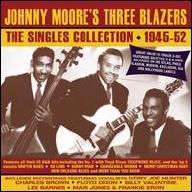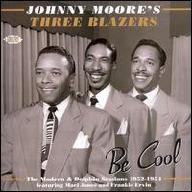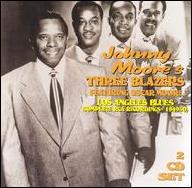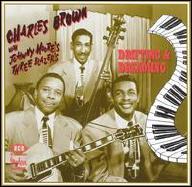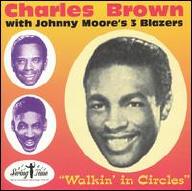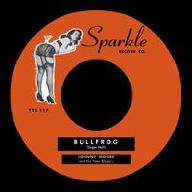Johnny Moore was born in Selma, AL, in 1934, and was raised in Chicago, where his early singing was steeped in gospel music. He joined a group called the Hornets in 1953, who recorded one single, Lonesome Baby b/w I Can't Believe You're in Love With Me, for the States label (which is reportedly one of the rarest R&B singles in creation, commanding five-figures from collectors). In 1955, the Drifters were playing a show in Cleveland, OH, when they were approached by Moore, who asked for an audition. Unbeknownst to him, the group was looking for a successor to their interim lead vocalist, David Baughn, whose unstable behavior rendered him unreliable. Moore was astonished when the group took him backstage and, cold, told him to sing, which he did, and even more so the next day when, with the approval of manager George Treadwell, he received a telephone call telling him that he was a member. His first stint with the group was moderately successful, yielding the R&B hits Adorable, I Gotta Get Myself a Woman, and Ruby Baby, but before Moore had been there for a year, and before the group could build up any momentum, he was drafted. Moore spent the next two years serving in uniform in Germany.
Moore was next heard from in 1959 under the name Johnny Darrow for the Melic Records and Sue Records labels without chalking up a chart hit. Ironically, he became a member with original Drifters guitarist Jimmy Oliver of the Clyde McPhatter Revue, alongside the Bobbettes and the Drifters. He wasn't far from the group's orbit over the next year, joining the Drapers and singing on the Gee Records single (I Know) Your Love Has Gone Away, which had been written by Ben E. King, Doc Green, and Lover Patterson, all of whom were associated with the post-1958 Drifters and their predecessors the Crowns. For a time, the Drapers tried without success to piggyback on their genealogical association with the Drifters by identifying themselves as successors to the 1950s version of the group.
It's a tribute to Johnny Moore's vocal prowess that, despite his efforts to cut in on the Drifters' action, he was invited back into the Drifters in March of 1963. At the time, lead singer Rudy Lewis had announced his intention to leave the group for a potentially much more lucrative solo career, but hadn't found an opportune professional moment in which to do so. This five-man (six counting guitarist Billy Davis) lineup became the group's peak incarnation, Moore sharing lead vocal responsibilities with Lewis and duetting together on record as well. The songs that the group recorded during this period were as good as anything in their history, including I'll Take You Home, One Way Love, If You Don't Come Back, and Didn't It, all featuring Moore on lead vocals.
The sudden death of Rudy Lewis on May 20, 1964, left Johnny Moore as the group's lead singer. Under the Boardwalk was the single cut the following day and the group's last big hit. Moore was the lead singer represented on the only official live sides cut by the group, and he was later given the opportunity to do an unofficial solo album (credited to the Drifters), The Good Life. The group continued performing for the remainder of the 1960s and stayed with Atlantic until 1972.
Moore continued on with a version of the Drifters into the 1970s, but by the middle of that decade, there were several groups using that name under various trademark and licensing claims: Doc Green led one, original 1950s member Bill Pinkney led another, and Moore, leading the group authorized by the widow of manager George Treadwell, led another. Eventually, that version of the Drifters moved their base of operations to England, where the reissue of two old singles, At the Club and Come on Over to My Place had both charted extremely well in 1972. They took on a more pop-oriented sound, even as they freely traded in the remembered legacy of the group's late-'50s/early-'60s classic sides. During the early '70s, after leaving Atlantic, they were signed by Bell Records' U.K. arm and, under the guidance of producer Tony Macaulay and songwriters Roger Cook and Roger Greenaway, they enjoyed a string of six Top Ten British hits with Moore as lead singer, including Kissing in the Back Row, There Goes My First Love, and You're More Than a Number in My Little Red Book. By the 1980s, Moore had left the lineup, although he periodically resurfaced, primarily in England, fronting various groups doing Drifters repertory and was seen on British television well into the late '90s, despite respiratory problems that left him sidelined from full-time performing in his mid-'60s. ~ Bruce Eder, Rovi


